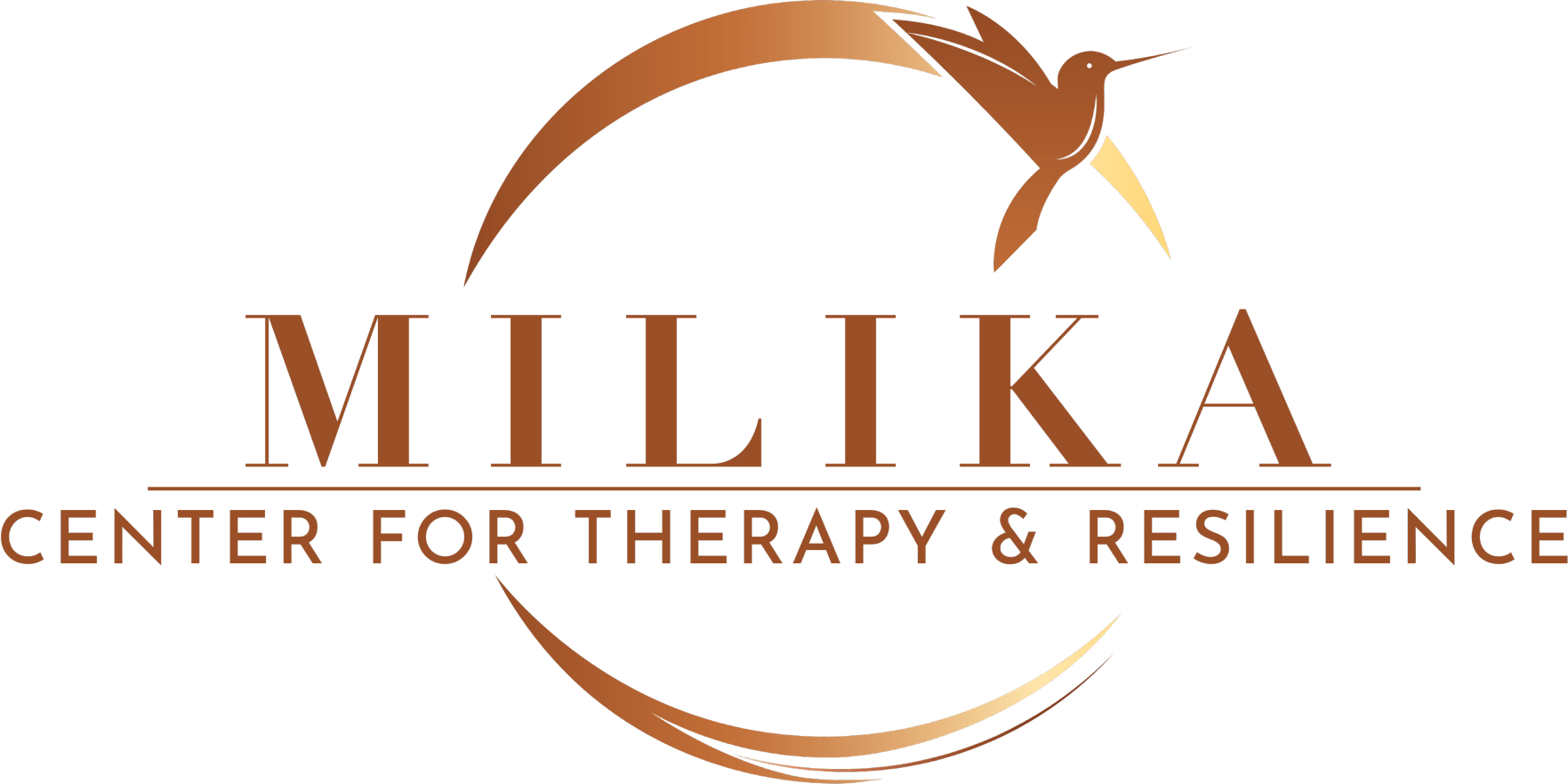Physician burnout is a growing concern in recent years, affecting many practitioners and doctors across specialties. The stress of balancing patient care, administrative duties, and personal life often leads to feelings of exhaustion, detachment, and diminished physician satisfaction. As a result, many physicians find themselves wondering the best way to treat their burnout.
Unfortunately, the medical profession tends to perpetuate a culture of endurance, where seeking help is seen as a sign of weakness. We’re here to shatter that myth. Reaching out for support is a sign of strength, and seeking treatment is essential for both personal relationships and professional well-being. At Milika Center for Therapy and Resilience, our team of clinical psychologists have been helping medical professionals overcome overwhelming feelings of burnout through specialized therapy and resilience-skills training. With the right support, physicians can rebuild their resilience and thrive in their careers.
Common signs & symptoms of burnout among health professionals
Physician burnout rates are growing. Understanding the common signs and symptoms can help in identifying clinician burnout early, allowing for timely intervention. Here are some key indicators to watch for:
- Chronic fatigue, even after rest
- Emotional exhaustion and a sense of detachment from work and personal life
- Increased cynicism or feelings of negativity
- Decreased sense of personal accomplishment
- Difficulty concentrating or making decisions
- Physical symptoms like headaches, gastrointestinal issues, or trouble sleeping
The symptoms, if left untreated, can escalate and impact both personal well-being and patient care. Recognizing these signs early is essential to seeking the support you need.
What causes burnout among physicians?
Burnout often stems from a combination of personal, professional, and systemic factors that weigh heavily on physicians over time. Understanding the underlying causes can help in prevent and treat physician burnout effectively.
Key factors contributing to physician burnout include:
- Workload and long hours: Demanding schedules leave little time for recovery, leading to chronic fatigue and decreased productivity. This may be even further impacted with the addition of medical training, medical students, or residency training programs.
- Administrative burden: Increasing documentation and other administrative tasks can detract from time spent with patients, leading to frustration.
- Lack of work-life balance: Heavy work commitment can lead to strained relationships with family and friends who feel neglected, a lack of physical energy, having limited opportunities to recharge, and a loss of connection to personal hobbies, interests, physical activity, and passions outside of medicine.
- Emotional strain from patient care: Repeated exposure to trauma or dealing with life-or-death situations takes an emotional toll, eroding compassion and resilience.
- Lack of control or autonomy: Physicians may feel powerless in making decisions, particularly in bureaucratic health systems.
Addressing these contributing factors is crucial for developing long-term solutions that protect physician wellness and and prevent burnout.
The importance of early treatment for health care professionals
 Untreated burnout not only affects a physician’s personal well-being but can also have serious professional consequences. Physicians who experience burnout are more likely to make medical errors, which impacts both patient safety and care quality. It’s not uncommon for physicians experiencing burnout to consider leaving the profession altogether, impacting the work environment via a shortage of healthcare providers or trends of increased physician turnover.
Untreated burnout not only affects a physician’s personal well-being but can also have serious professional consequences. Physicians who experience burnout are more likely to make medical errors, which impacts both patient safety and care quality. It’s not uncommon for physicians experiencing burnout to consider leaving the profession altogether, impacting the work environment via a shortage of healthcare providers or trends of increased physician turnover.
Early intervention is critical to prevent these outcomes and alleviate burnout. While seeking help can feel difficult due to stigma or fear of judgment, prioritizing mental health is an essential part of being able to care for others. By addressing burnout early, physicians can prevent further decline in their mental and physical health, ultimately benefiting both themselves and their patients. We often use the oxygen mask analogy with our health care workers: you must put your own oxygen mask first before you put it on others.
3 top treatment options to address burnout and improve physician well being
There are several effective strategies address physician burnout, depending on the individual’s need. Below are some of the most successful options for overcoming burnout and regaining balance.
1. Cognitive Behavioral Therapy (CBT)
How it works: Cognitive Behavioral Therapy (CBT) is a highly effective, evidence-based treatment that helps individuals identify and address the underlying thought patterns, emotions, and behaviors contributing to their distress. By using CBT, individuals work to shift maladaptive thinking and beliefs that have become engrained over the years.
How it helps: CBT empowers physicians to develop greater awareness of their inner dialogue and maladaptive thought patterns. Through cognitive reframing strategies, they can ‘re-wire’ their brain, leading to a more adaptive mindset, healthier behaviors, and enhanced emotional resilience.
*Special consideration: Given the risk of exposure to potentially traumatic experiences in medicine, primary care physicians may benefit from Trauma-Focused Cognitive Behavioral Therapy (TFCBT). This modality addresses and helps heal from trauma, promoting deeper emotional healing.
2. Mindfulness-Based Stress Reduction (MBSR)
How it works: Developed by Dr. Jon Kabat-Zinn in 1979, MBSR is a program that combines mindfulness practices such as breathing exercises, meditation, and yoga or stretching to reduce stress and improve overall well-being. Initially developed for stress management, MBSR has evolved to address other health conditions, including anxiety, depression, pain, immune disorders, hypertension, and diabetes. By focusing on the present moment without judgment, MBSR helps individuals break free from habitual reactivity patterns and foster a more mindful approach to life.
How it helps: MBSR trains attention to cultivate self-awareness, allowing one to engage in logical reasoning and informed decision-making. By incorporating mindfulness into daily life, individuals become more present-focused and aware of their thoughts, emotions, and actions. MBSR reduces rumination, allowing individuals to respond to stress more effectively. MBSR is often used in conjunction with other therapies, such as cognitive-behavioral therapy (CBT), to enhance treatment outcomes and address professional burnout.
3. Resilience Training
How it works: Resilience training equips physicians with a comprehensive set of skills to navigate the demands of their profession and life circumstances. These skills focus on emotion regulation, problem-solving, communication, goal-setting, and managing trauma/stress reminders. Brief narrative work is often incorporated to help physicians make sense of their personal and their professional development, identify strengths and areas for growth, and develop a greater sense of purpose.
How it helps: Resilience training helps by equipping physicians with a personalized and versatile toolbox of skills to handle the adversities inherent in their profession, helping them to feel a reduced sense of stress, effectively manage professional demands, rapidly recover from stressful situations, and enhance overall well-being.
What’s the best treatment option to combat physician burnout?
Selecting the most effective treatment for physician burnout requires a personalized approach, considering your unique needs, circumstances, and preferences. For some physicians, exploring current and past experiences that contribute to burnout and addressing underlying issues can be transformative. Cognitive Behavioral Therapy (CBT) may be the best fit, allowing individuals to explore and challenge negative thought patterns, reframe unhelpful beliefs, and develop adaptive coping strategies. In the context of physicians with trauma exposure, a trauma-informed approach to treatment is ideal.
However, some physicians may prefer a shorter-term, skills-focused approach to manage and reduce burnout, and build resilience. In this case, resilience training and/or Mindfulness-Based Stress Reduction (MBSR) may be the preferred option. These approaches equip physicians with practical tools and stress management techniques, without requiring a deeper level of vulnerability and exploration.
Notably, some physicians may find resilience training to be a launching pad to tackle more challenging topics, creating a sense of safety and readiness to engage in therapy, such as CBT. By understanding your unique needs and preferences, you and your clinician can collaborate to identify the best treatment path.
At Milika Center, we understand the importance of meeting physicians where they are and offering a range of treatment options to support their unique journeys.

How Milika Center for Therapy & Resilience can help
At Milika Center, we specialize in supporting physicians through burnout recovery as well as help heal from challenges. Recognizing that each individual physicians journey is distinct, our expert clinicians offer personalized research-backed treatment plans, including cognitive behavioral therapy, mindfulness practices, and resilience training. By providing a safe and compassionate space for reflection and growth, we help physicians alleviate stress and regain their sense of purpose and well-being.
Whether you’re at the beginning stages of burnout or seeking more comprehensive support, our team is here to guide you.
Real-world success stories
At Milika Center, we’ve had the honor of helping physicians rediscover their resilience and passion for medicine.
From Burnout and Bitterness to Balance
One physician we worked with was trapped in a cycle of exhaustion, overwhelmed by patients, paperwork, decision-making, and publishing research. She described feeling distant from her loved ones, being bitter about missing major family and friend events/milestones due to work, and questioned whether she could continue in her role without sacrificing her mental health.
Through cognitive behavioral therapy and mindfulness practices, she identified catastrophic thought patterns fueling their perfectionistic tendencies. These patterns, rooted in past failures, drove excessive time spent on patient note-writing and publication draft writing, due to fears of imperfection. By increasing her awareness of her inner critic, automatic thought patterns and learning how to reframe them, the physician developed a more balanced mindset and approach to work, learning to also give herself some grace.
Daily commutes, even in challenging Los Angeles traffic, became opportunities for self-care: listening to music, prayers, connecting with loved ones, or reflecting on daily gratitudes. As she implemented these strategies, she regained confidence, efficiency, and freedom. Joy started to return to patient care, hobbies, and relationships with loved ones.
Today, our physician embodies a healthier work-life balance, recognizing the interconnectedness of personal and professional life. Her transformative journey has helped her leave the bitterness behind and find passion for medicine again.
A Surgeon’s Journey
A surgeon on the brink of quitting the field turned to MILIKA for support. The relentless emotional toll of life-or-death decisions had taken its toll: sleepless nights, escalating anxiety, and a shortened fuse with colleagues and students, resulting in strained professional relationships and job satisfaction.
Through resilience training, we helped him develop healthier coping mechanisms and process the emotional strain inherent to their profession. Initially, he demonstrated a lack of awareness of early stress and anxiety signs. To address this, he practiced mindfulness and logged his stress triggers throughout the day, collecting patient data on himself. This exercise revealed patterns: anxiety peaked during the commute to work, triggered by the anticipation of catastrophic patient outcomes; irritability spiked when skipping meals. As self-awareness grew, he applied strategies to regulate emotions early on, dodging high reactivity. Communication and problem-solving skills were honed through resilience training, enhancing relationships with colleagues and students. He became a more patient and effective mentor.
After a brief break in treatment, he returned with increased readiness to confront traumatic patient deaths. This marked a significant shift, allowing our clinician to introduce Trauma-Focused Cognitive Behavioral Therapy (TF-CBT). The trust and comfort established through resilience training proved instrumental in facilitating this deeper, more vulnerable work.
These stories remind us that with the right support, it’s possible for physicians to heal and thrive, even after reaching a breaking point.
Final thoughts on physician burnout solutions
Physician burnout is a serious issue that requires attention and quality care. By recognizing the signs early and seeking appropriate treatment, it’s possible to regain balance and thrive in your career once more. Whether it’s through evidence-based treatments like CBT or MSRB, or resilience skills training, taking the first step toward addressing and preventing physician burnout symptoms is crucial.
If you’re struggling with job burnout, reach out to Milika Center today. Our team of experienced clinical psychologists is here to support you in your journey to recovery and resilience.
